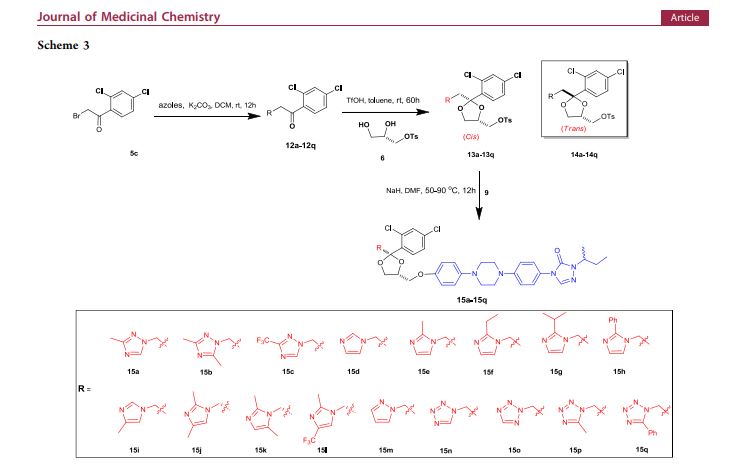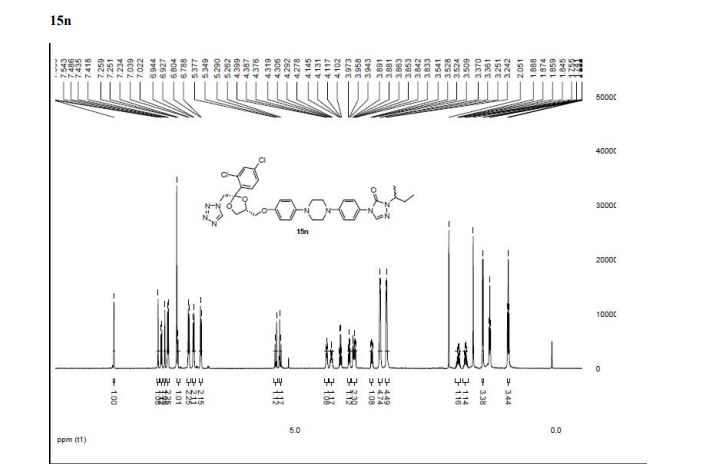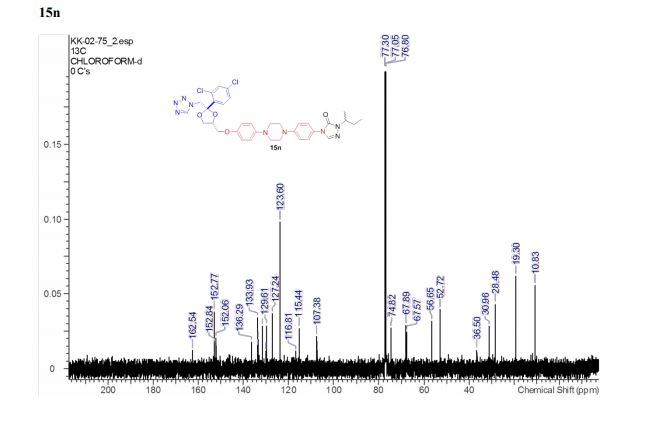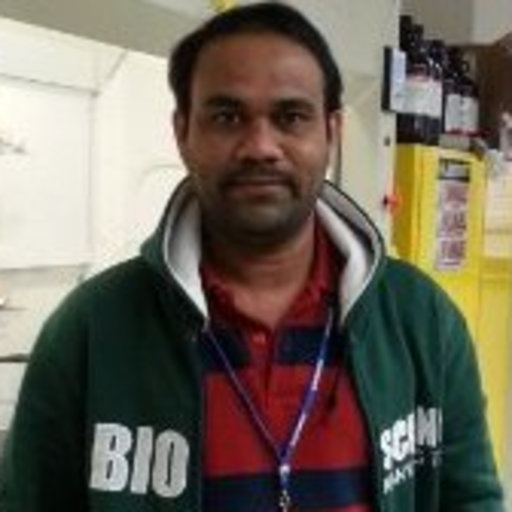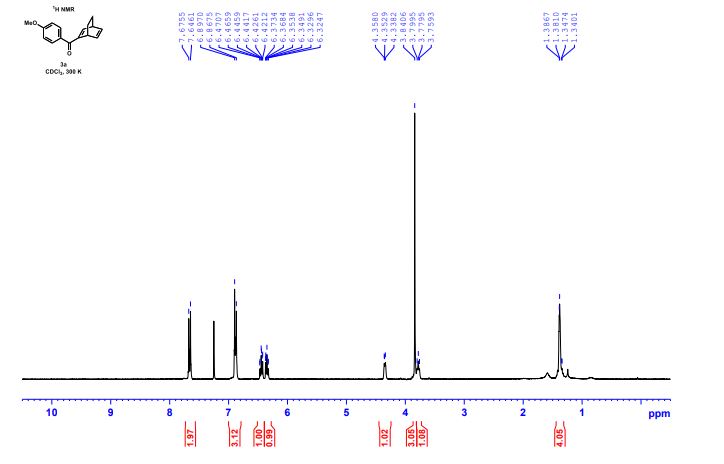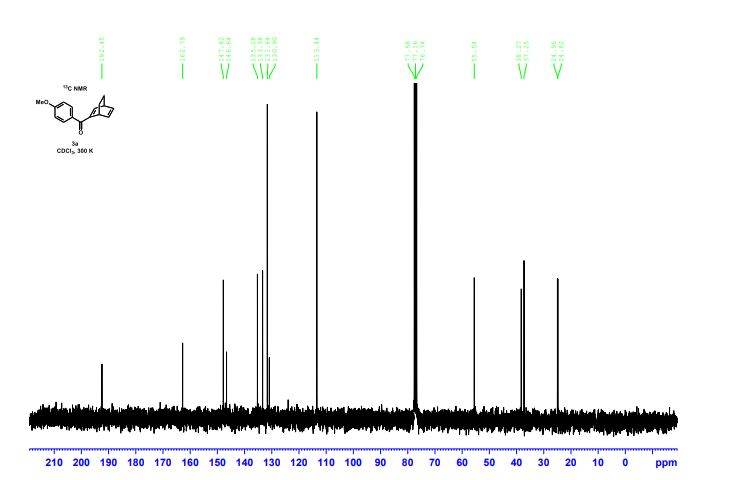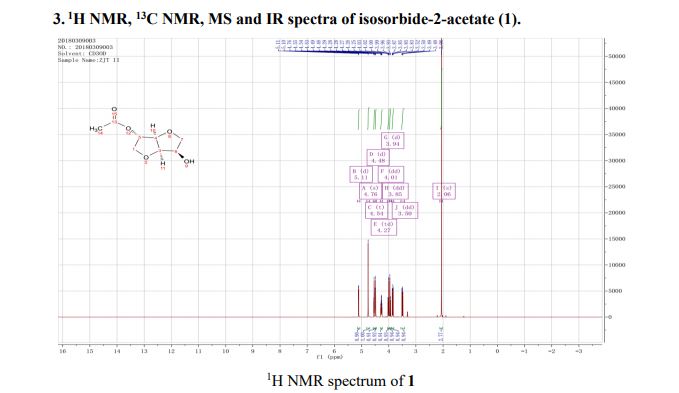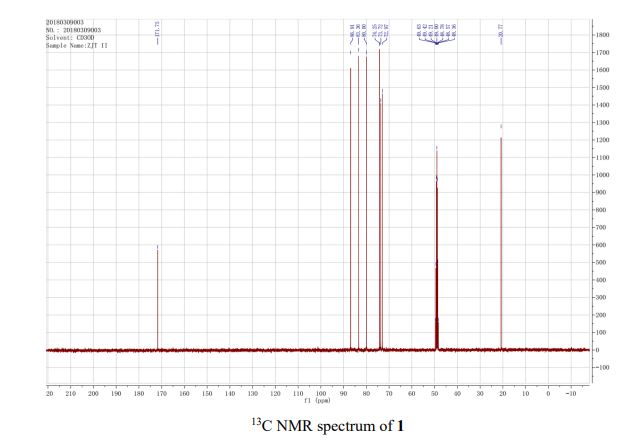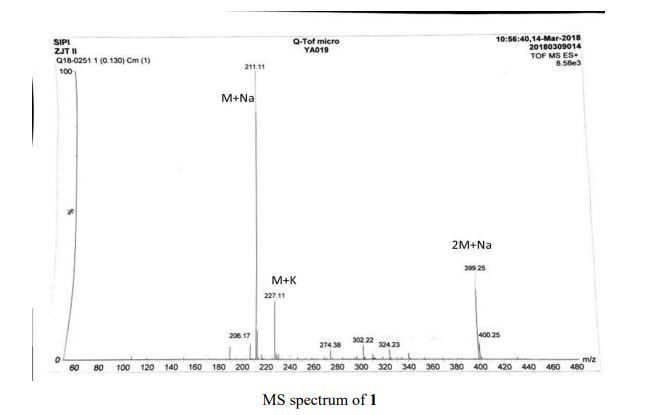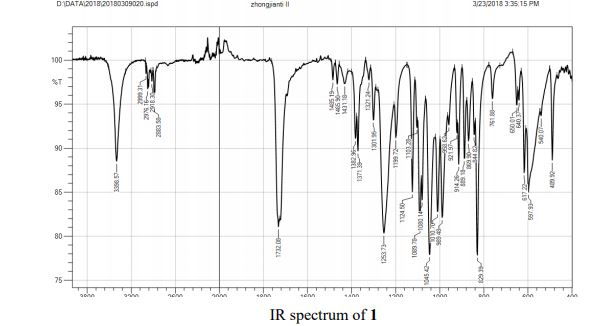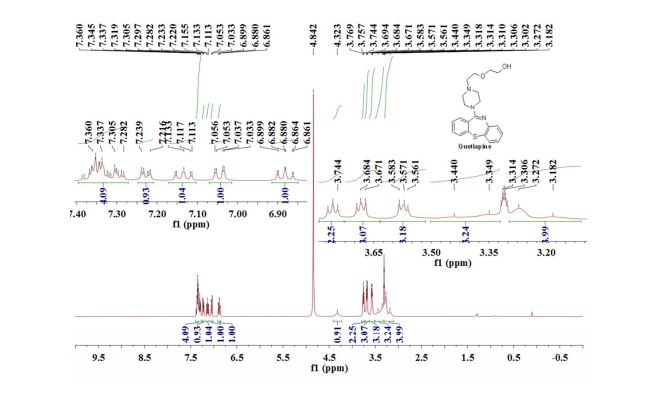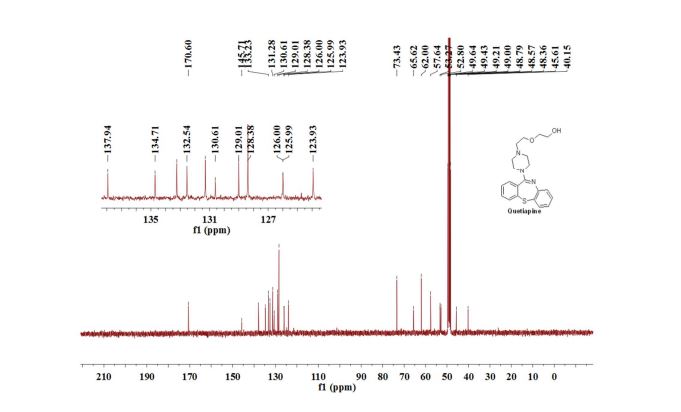Organic Chemists from Industry and academics to Interact on Spectroscopy Techniques for Organic Compounds ie NMR, MASS, IR, UV Etc. Starters, Learners, advanced, all alike, contains content which is basic or advanced, by Dr Anthony Melvin Crasto, Worlddrugtracker, email me ........... amcrasto@gmail.com, call +91 9323115463 India skype amcrasto64
................DR ANTHONY MELVIN CRASTO Ph.D ( ICT, Mumbai) , INDIA 25Yrs Exp. in the feld of Organic Chemistry,Working for GLENMARK GENERICS at Navi Mumbai, INDIA. Serving chemists around the world. Helping them with websites on Chemistry.Million hits on google, world acclamation from industry, academia, drug authorities for websites, blogs and educational contribution
Pages
- Home
- ABOUT ME
- DIMENSIONS IN NMR SPECTROSCOPY
- 13 C NMR
- 1H NMR
- CHEMDOODLE/INTERACTIVE SPECT PREDICT
- Animations
- HELP ME
- Multinuclear NMR Spectroscopy
- Examples of 13C NMR
- Books on NMR spectroscopy
- UV-Visible Spectroscopy
- IR SPECTRA EXAMPLES
- Journals
- Organic spectroscopy site
- Spectroscopy sites
- IR SPECTROSCOPY
- Books-2
- Recommended Web Sites for Spectra and Spectrum-rel...
- DISCLAIMER
- Mössbauer spectroscopy
- FINDING CHEMICAL SPECTRA
- Mass Spectrometry
- NMR Overview
- Characterisation of Organic Compounds
- SDBS Spectral Database System for Organic Compounds
- CHEMICAL SHIFT
- MASS SPECTROSCOPY
- Books-1
- MASSBANK PORTAL
- 11B NMR
Friday, 25 January 2019
Tuesday, 15 January 2019
Saturday, 5 January 2019
Kalyan Kumar Pasunooti, Novel Tetrazole-Containing Analogues of Itraconazole as Potent Antiangiogenic Agents with Reduced Cytochrome P450 3A4 Inhibition

Itraconazole has been found to possess potent antiangiogenic activity, exhibiting promising antitumor activity in several human clinical studies. The wider use of itraconazole in the treatment of cancer, however, has been limited by its potent inhibition of the drug metabolizing enzyme cytochrome P450 3A4 (CYP3A4). In an effort to eliminate the CYP3A4 inhibition while retaining its antiangiogenic activity, we designed and synthesized a series of derivatives in which the 1,2,4-triazole ring is replaced with various azoles and nonazoles. Among these analogues, 15n with tetrazole in place of 1,2,4-triazole exhibited optimal inhibition of human umbilical vein endothelial cell proliferation with an IC50 of 73 nM without a significant effect on CYP3A4 (EC50 > 20 μM). Similar to itraconazole, 15n induced Niemann-Pick C phenotype (NPC phenotype) and blocked AMPK/mechanistic target of rapamycin signaling. These results suggest that 15n is a promising angiogenesis inhibitor that can be used in combination with most other known anticancer drugs.
Novel Tetrazole-Containing Analogues of Itraconazole as Potent Antiangiogenic Agents with Reduced Cytochrome P450 3A4 Inhibition
Yingjun Li†§, Kalyan Kumar Pasunooti†§, Ruo-Jing Li†, Wukun Liu†, Sarah A. Head†, Wei Q. Shi†  , and Jun O. Liu*†‡
, and Jun O. Liu*†‡ 
 , and Jun O. Liu*†‡
, and Jun O. Liu*†‡ 
†Department of Pharmacology and Molecular Sciences and ‡Department of Oncology, Johns Hopkins School of Medicine, Baltimore, Maryland 21205, United States
J. Med. Chem., 2018, 61 (24), pp 11158–11168
DOI: 10.1021/acs.jmedchem.8b01252
Publication Date (Web): November 27, 2018
Copyright © 2018 American Chemical Society
■ ASSOCIATED CONTENT *S Supporting Information The Supporting Information is available free of charge on the ACS Publications website at DOI: 10.1021/acs.jmedchem.8b01252. Molecular formula strings (CSV) Detail of synthesis procedures; kinetic curve of CYP3A4 enzyme activities; philipin staining of compound 15c, 15g; competition assay of itraconazole photoaffinity probe; and NMR and HPLC chart of representative compounds (PDF)
■ AUTHOR INFORMATION Corresponding Author *E-mail: joliu@jhu.edu. Phone 410-955-4619. Fax 410-955- 4520. ORCID Wei Q. Shi: 0000-0001-5453-1753 Jun O. Liu: 0000-0003-3842-9841 Author Contributions § Y.L. and K.K.P. contributed equally to this work. Notes The authors declare no competing financial interest.
■ ACKNOWLEDGMENTS This work was supported by the National Cancer Institutes (grant R01CA184103) and the Flight Attendant Medical Research Institute
4-(4-(4-(4-(((2S,4R)-2-((1H-Tetrazol-1-yl)methyl)-2-(2,4-dichlorophenyl)-1,3-dioxolan-4-yl)methoxy)phenyl)piperazin-1-yl)phenyl)- 1-sec-butyl-1H-1,2,4-triazol-5(4H)-one (15n).
1 H NMR (500 MHz, CDCl3, δH): 8.46 (s, 1H), 7.61 (s, 1H), 7.55 (d, J = 8.5 Hz, 1H), 7.48 (d, J = 2.0 Hz, 1H), 7.43 (d, J = 9 Hz, 2H), 7.24 (dd, J = 8.5, 2.0 Hz, 1H), 7.03 (d, J = 9.0 Hz, 2H), 6.81 (d, J = 9.0 Hz, 2H), 5.36 (d, J = 14.0 Hz, 1H), 5.27 (d, J = 14.0 Hz, 1H), 4.38 (t, J = 5.0 Hz, 1H), 4.31−4.27 (m, 1H), 3.95 (dd, J = 8.5, 6.5 Hz, 1H), 3.88−3.83 (m, 2H), 3.53 (dd, J = 9.5, 6.5 Hz, 1H), 3.38 (br s, 4H), 3.26 (br s, 4H), 1.89−1.83 (m, 1H), 1.74−1.69 (m, 1H), 1.39 (d, J = 7.0 Hz, 3H), 0.90 (t, J = 7.5 Hz, 3H).
13C NMR (125 MHz, CDCl3, δC): 162.5, 152.8, 152.7, 152.0, 136.3, 133.9, 133.3, 131.5, 130.1, 129.6, 127.2, 123.6, 116.8, 115.4, 107.4, 74.8, 67.9, 67.6, 56.6, 52.7, 36.5, 31.0, 28.5, 19.2, 10.8.
HRMS (ESI) calcd for C34H37Cl2N9O4, 706.2424; found, 706.2425.
HPLC purity: 95.9%, tR = 10.5 min
Kalyan Kumar Pasunooti,
Experience





|
Dr. Kalyan Kumar Pasunooti pursued his PhD degree from Nanyang Technological University (NTU) (www.ntu.edu.sg), Singapore (2007 – 2011) in the field of Medicinal, Peptide & Protein chemistry. His graduate research work is focused on “Synthesis of bioactive amino acid building blocks and their applications towards the peptides and glycopeptides.” His have total 16 years of academic and industry experience with major multinationals companies & academic institutions and have worked with many collaborative professors around the globe. He authored with more than 28 international peer-reviewed high impact publications such as PNAS, Wily (Angew Chemie), RSC (Chem Comm and Org Biomol Chem), most of American Chemical Society journals (Journal of American Chemical Society, Org. Lett., ACS Chem Bio, J Comb Chem and Bioconugate Chem) and Elsevier (Tetrahedron Letters) journals which are featured many times in Chem. Eng. News and other journals. He holds American patent while work with Johns Hopkins-School of Medicine, USA and this molecule in phase II clinical trials for treating cancer.
Prior to his graduate studies, he spent 5 years as a research scientist in reputable research organizations namely GVK Bio, India (www.gvkbio.com) (2006-2007) and Dr. Reddy’s Laboratories Ltd (www.drreddys.com) (2003-2006) in India. After his PhD graduation, he worked for world leading research institutes such as Johns Hopkins-School of Medicine, USA (www.hopkinsmedicne.org) (2012-2013), Nanyang Technological University-NTU, Singapore) (www.ntu.edu.sg) (2013 – 2017) and Singapore MIT Alliance for research & Technology-SMART (www.smart.mit.edu) (2017–2018). His research interests focused on development of next generation biologically relevant peptide & protein therapeutics using their newly discovered methodologies for biomedical applications.
He has excellent skills in designing synthesis, purification and characterization of complex peptide and small molecules for medicinal chemistry applications. He gained extensive experience in Medicinal, Carbohydrate, Peptide & Protein and nucleotide & nucleoside Chemistry and familiar with modern methods and experienced in designing & executing synthesis for various bioactive peptide and small molecule inhibitors. He well versed in synthesis and characterization of complex organic molecules and with the analytical data interpretation.
Prior to his graduate studies, he spent 5 years as a research scientist in reputable research organizations namely GVK Bio, India (www.gvkbio.com) (2006-2007) and Dr. Reddy’s Laboratories Ltd (www.drreddys.com) (2003-2006) in India. After his PhD graduation, he worked for world leading research institutes such as Johns Hopkins-School of Medicine, USA (www.hopkinsmedicne.org) (2012-2013), Nanyang Technological University-NTU, Singapore) (www.ntu.edu.sg) (2013 – 2017) and Singapore MIT Alliance for research & Technology-SMART (www.smart.mit.edu) (2017–2018). His research interests focused on development of next generation biologically relevant peptide & protein therapeutics using their newly discovered methodologies for biomedical applications.
He has excellent skills in designing synthesis, purification and characterization of complex peptide and small molecules for medicinal chemistry applications. He gained extensive experience in Medicinal, Carbohydrate, Peptide & Protein and nucleotide & nucleoside Chemistry and familiar with modern methods and experienced in designing & executing synthesis for various bioactive peptide and small molecule inhibitors. He well versed in synthesis and characterization of complex organic molecules and with the analytical data interpretation.
Dr. Kalyan Kumar Pasunooti
Research Scientist at Singapore-MIT Alliance for Research & Technology CentreSingapore’
Accomplished Peptide, Protein and Medicinal chemist with 16 years of academic and industrialexperience in the field of drug discovery and development. Specializations: Peptide & Protein Chemistry,Medicinal Chemistry (Drug Discovery and Development) and Chemical Biology.
Experience
Research Scientist
Company NameSingapore-MIT Alliance for Research & Technology Centre
Dates EmployedJul 2017 – Present
Employment Duration1 yr 4 mos
LocationSingapore
Medicinal Chemistry and Drug Discovery

Research Fellow
Company NameNanyang Technological University, Singapore
Dates EmployedOct 2013 – Jun 2017
Employment Duration3 yrs 9 mos
LocationSingapore
Peptide & Protein Chemistry and Medicinal Chemistry

Postdoctoral Fellow
Company NameJohns Hopkins Medicine
Dates EmployedMay 2012 – Sep 2013
Employment Duration1 yr 5 mos
LocationBaltimore, Maryland Area
Medicinal chemistry, Drug Discovery, Pharmacology and Chemical Biology

Postdoctoral Associate
Company NameNanyang Technological University
Dates EmployedJul 2011 – Mar 2012
Employment Duration9 mos
LocationSingapore
Organic synthesis, Peptide & Carbohydrate chemistry and Medicinal chemistry.

Senior Research Associate in Medicinal Chemistry
Company NameGVK Biosciences
Dates EmployedJan 2007 – Jul 2007
Employment Duration7 mos
LocationHyderabad Area, India
Synthesis of bioactive molecules for medicinal chemistry applications.

Junior Scientist in Medicinal Chemistry (Anti-Infective group)
Company NameDr. Reddy’s Laboratories
Dates EmployedAug 2003 – Dec 2006
Employment Duration3 yrs 5 mos
LocationHyderabad Area, India
Medicinal chemistry (Anti-Infective group): My work entails design and synthesis of newoxazolidinone derivatives and new chemical entities as novel antibacterial agents. As a researchscientist my job demanded me to carry out extensive literature survey to design possible syntheticroutes for a proposed molecule and to carry out the total synthetic part in the laborator… See more
Education
Nanyang Technological University
Degree NamePhDField Of StudyOrganic and Bioorganic chemistryDates attended or expected graduation –Osmania University
Degree NameM. ScField Of StudyPhysical Organic ChemistryDates attended or expected graduation –Kakatiya University
Degree NameB. Sc,Field Of StudyMathematics Physics ChemistryDates attended or expected graduation –
Research Scientist at Singapore-MIT Alliance for Research and Technology
Research Fellow at Nanyang Technological University, Singapore
Former Post-Doctoral Fellow at Johns Hopkins School of Medicine
Studied Physical organic chemistry at PG College of Science, Saifabad/Osmania University
Studied M.P.C at Government Junior College, Hanamkonda
Studied B.Sc. at Kakatiya Government Degree College
Went to Z. P. S. S. Geesugonda
READ
ANTHONY MELVIN CRASTO
 DRUG APPROVALS BY DR ANTHONY MELVIN CRASTO …..FOR BLOG HOME CLICK HERE
DRUG APPROVALS BY DR ANTHONY MELVIN CRASTO …..FOR BLOG HOME CLICK HERE
Join me on google plus  Googleplus
Googleplus
 amcrasto@gmail.com
amcrasto@gmail.com
CALL +919323115463 INDIA
//////////////
Monday, 10 December 2018
(1S,4R)-2-(4-Methoxybenzoyl)bicyclo[2.2.2]octa-2,5-diene
(1S,4R)-2-(4-Methoxybenzoyl)bicyclo[2.2.2]octa-2,5-diene (3a) Yellow liquid (25.2 mg, 95% yield):
1H NMR (300 MHz, CDCl3) 1.39 (s, 4H, alkyl), 3.77-3.80 (m, 1H, alkyl), 3.85 (s, 3H, OMe), 4.36 (d, J = 5.4 Hz, 1H, alkyl), 6.36 (dd, J = 6.0, 6.0 Hz, 1H, vinyl), 6.46 (dd, J = 6.0, 6.0 Hz, 1H, vinyl), 6.88-6.91 (m, 3H, vinyl + arom.), 7.67 (d, J = 8.3 Hz, 2H, arom.);
13C{1H} NMR (75 MHz, CDCl3) = 24.7, 24.8, 37.1, 38.2, 55.4, 113.3, 130.8, 131.5, 133.2, 135.1, 146.5, 147.7, 162.6, 192.3;
HRMS (ESI-TOF) m/z calculated for C16H16NaO2 [M+Na]+ 263.1048, found 263.1036;
FT-IR (neat, cm-1 ) 1033, 1174, 1255, 1354, 1600, 1637, 1730, 2870, 2957, 3054.
Optical Rotation: []D 26 +39.9 (c 2.52, CHCl3) for an enantiomerically enriched sample of 94% ee.
HPLC analysis (column, CHIRALPAK AD-3, hexane/2-propanol = 98/2, flow rate 1.0 mL/min, 20 C, detection UV 250 nm light); tR of major-isomer 20.7
Org. Lett., 2018, 20 (23), pp 7353–7357
DOI: 10.1021/acs.orglett.8b02263
////////////////
(1S,4R)-2-(4-Methoxybenzoyl)bicyclo[2.2.2]octa-2,5-diene
 DRUG APPROVALS BY DR ANTHONY MELVIN CRASTO .....FOR BLOG HOME CLICK HERE
DRUG APPROVALS BY DR ANTHONY MELVIN CRASTO .....FOR BLOG HOME CLICK HERE
READ
ANTHONY MELVIN CRASTO
 DRUG APPROVALS BY DR ANTHONY MELVIN CRASTO .....FOR BLOG HOME CLICK HERE
DRUG APPROVALS BY DR ANTHONY MELVIN CRASTO .....FOR BLOG HOME CLICK HERE
Join me on google plus  Googleplus
Googleplus
 amcrasto@gmail.com
amcrasto@gmail.com
CALL +919323115463 INDIA
Sunday, 11 November 2018
Isosorbide-2-acetate

Spectral Data for 1
MS (ESI): calcd for [M + Na]+, 211.11; found, 211.11.
IR (KBr) cm–1: 1732.08 (C═O), 3398.57 (−OH).
1H NMR (400 MHz, CD3OD): δ 5.11 (d, J = 3.6 Hz, 1H), 4.76 (s, 1H), 4.54 (t, J = 4.6 Hz, 1H), 4.49 (d, J = 4.4 Hz, 1H), 4.27 (td, J = 6.7, 5.1 Hz, 1H), 4.01 (dd, J = 10.7, 3.7 Hz, 1H), 3.95 (d, J = 10.7 Hz, 1H), 3.85 (dd, J = 8.8, 6.4 Hz, 1H), 3.50 (dd, J = 8.8, 7.3 Hz, 1H), 2.06 (s, 3H).
13C NMR (101 MHz, CD3OD): δ 20.8, 73.0, 73.7, 74.3, 80.0, 83.4, 86.9, 171.8.
Org. Process Res. Dev., Article ASAP
DOI: 10.1021/acs.oprd.8b00310
//////////////////
Tuesday, 9 October 2018
2-amino-4-bromo-5-fluorobenzoic acid

2-amino-4-bromo-5-fluorobenzoic acid as a white to off-white crystalline solid
1H NMR (400 MHz, DMSO-d6) δ 7.62 (d, J=9.6 Hz, 1H), 7.21-6.5 (m, 3H), 3.8- 3.3 (br s, 1H).
13C NMR (100 MHz, DMSO-d6) δ 170.5, 149.6, 147.6, 147.3, 120.4, 118.1, 118.0, 109.2, 109.0, 99.5.
mp >250 °C. IR (neat) 3494, 3351, 3053, 3038, 1521, 774 cm-1;
HRMS (ESI) m/z: calcd for C7H5BrFNO2 [M+H]+ 233.9560, found 233.9551.
Org. Lett., 2018, 20 (13), pp 3736–3740
DOI: 10.1021/acs.orglett.8b01218
////////////
Quetiapine

Quetiapine
1H NMR (400 MHz, CD3OD): δ = 3.18-3.27 (m, 4H), 3.35-3.44 (m, 3H), 3.56-3.58 (m, 3H), 3.67-3.69 (m, 3H), 3.76 (t, J = 5.2 Hz, 2H), 4.32 (s, 1H), 6.88 (td, J = 7.4 Hz, 1.2 Hz, 1H), 7.04 (dd, J = 7.8 Hz, 1.6 Hz, 1H), 7.13 (td, J = 7.8 Hz, 1.6 Hz, 1H), 7.23 (dd, J = 6.8 Hz, 2.4 Hz, 1H), 7.28-7.39 (m, 4H) ppm.
13C NMR (100 MHz, CD3OD): δ = 40.2, 45.6, 52.8, 53.3, 57.6, 62.0, 65.6, 73.4, 123.9, 125.99, 126.0, 128.4, 129.0, 130.6, 131.3, 132.5, 133.2, 134.7, 137.9, 145.7, 170.6 ppm.
HRMS (ESI+ ): calcd for C21H26N3O2S [M+H]+ 384.1740, found 384.1735.
Org. Lett., Article ASAP
DOI: 10.1021/acs.orglett.8b02812
/////////////
Subscribe to:
Comments (Atom)




